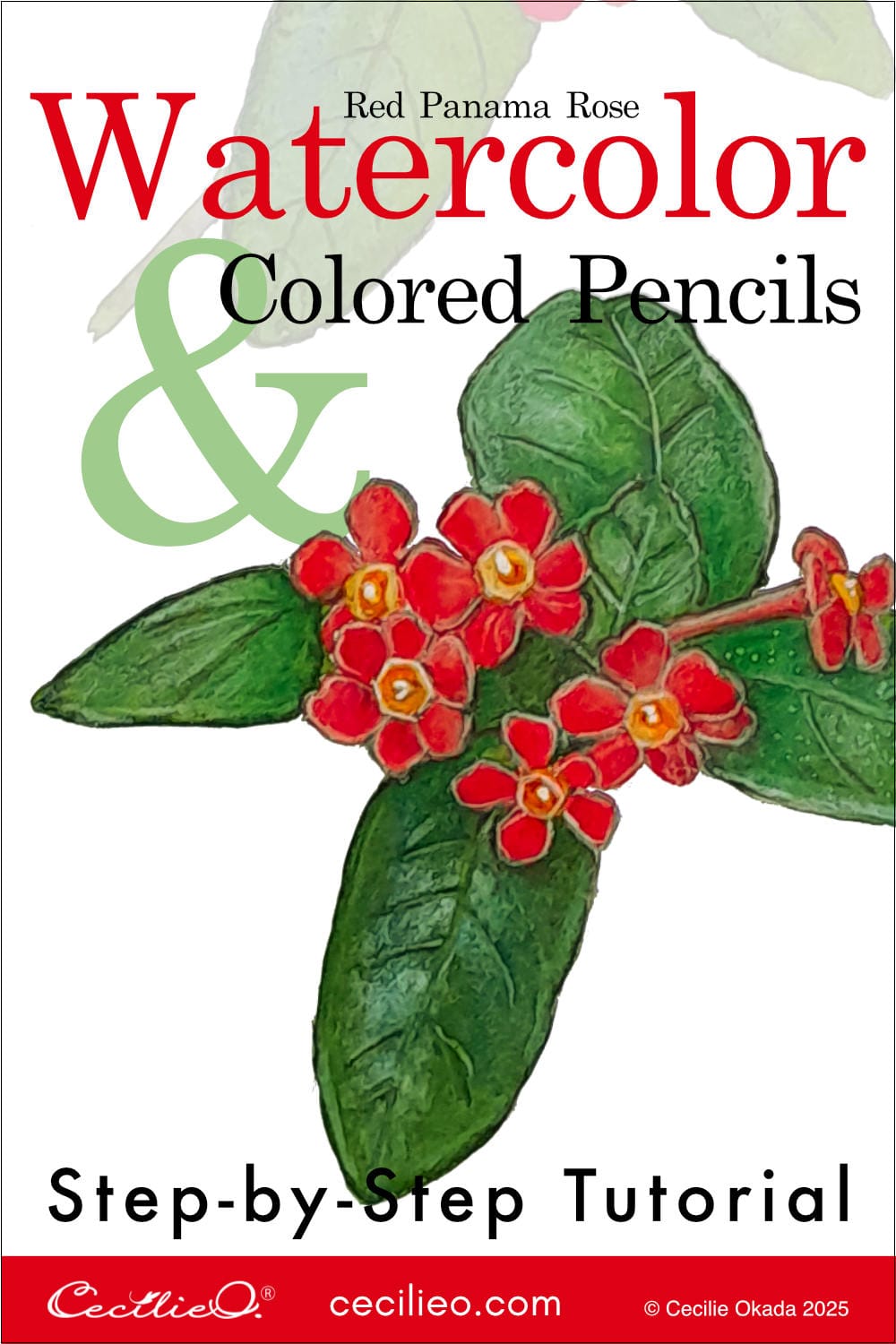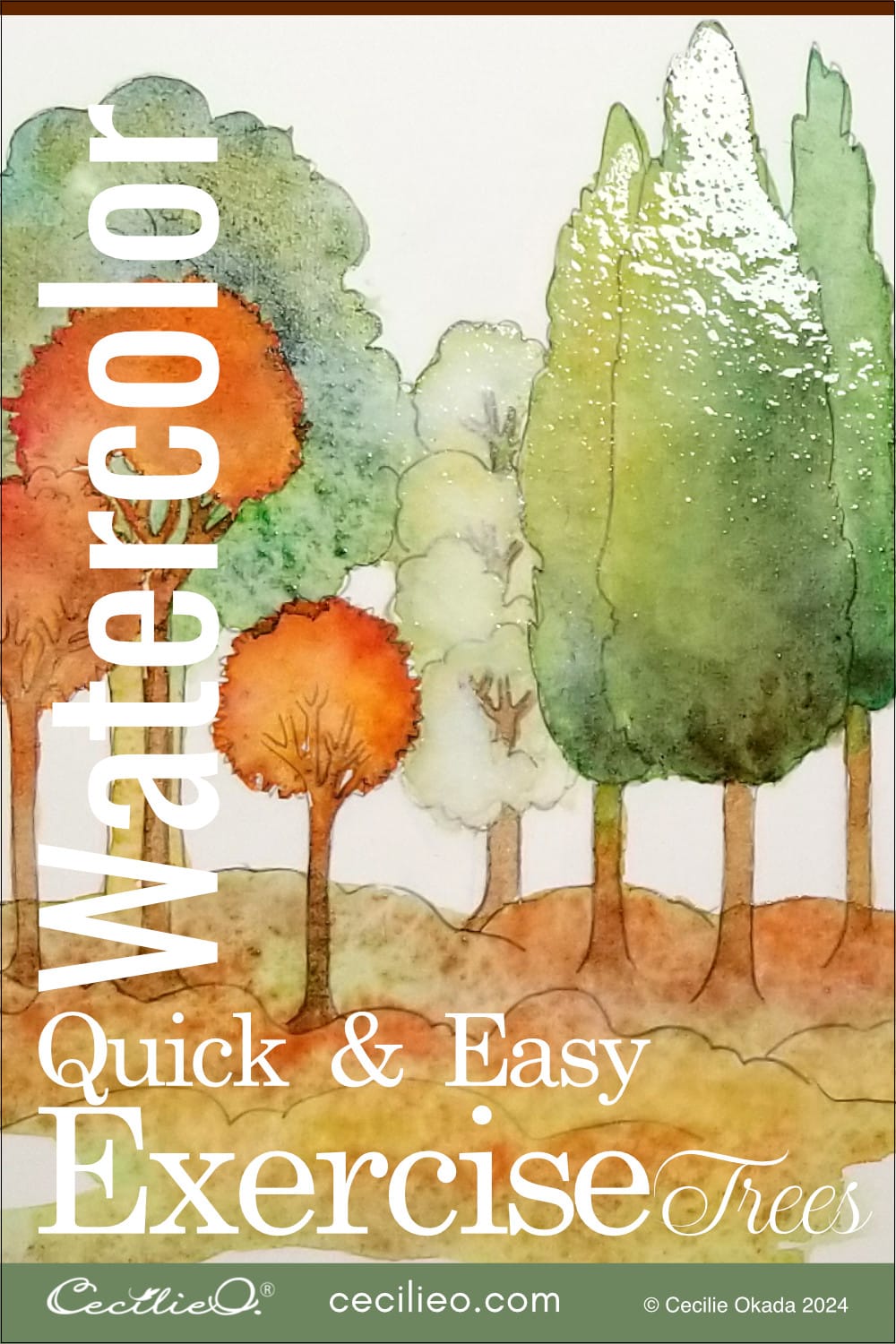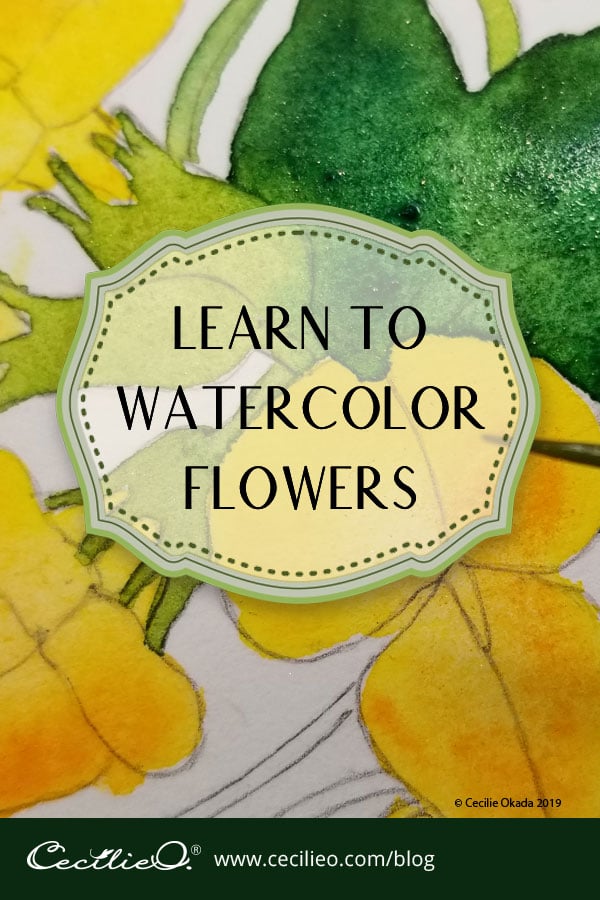
When you are learning to watercolor flowers, start simple. Flowers with uncomplicated shapes make it easy to succeed when you are a beginner. Multi-layer petals fall in the hard category. This tiny, yellow Bird’s Foot Trefoil flower is an easy one.
The simple petal structure means that you don’t need to consider shadows and depth. Still, you can paint something that looks quite real. Follow the step-by-step tutorial below.
The reference photo is from a trip to the far north of Norway. This trefoil is a pretty, little flower that grows by the wayside, in meadows, and on lawns. I love the delicate shape and cheerful, yellow color. Some say the flowers look like slippers. I never thought of that!
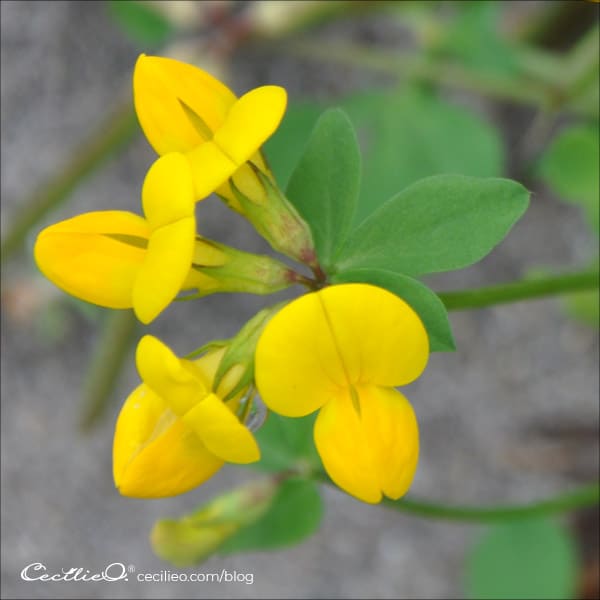
I’m a fan of the decorative arts, so sometimes, my flower drawings end up with embellishments. You can download the outline for this tutorial in One Tree Art Club so that you can focus on painting, not drawing. After printing it out, you can trace it onto your watercolor paper.
Step 1
Paint the flower petals with plenty of water.
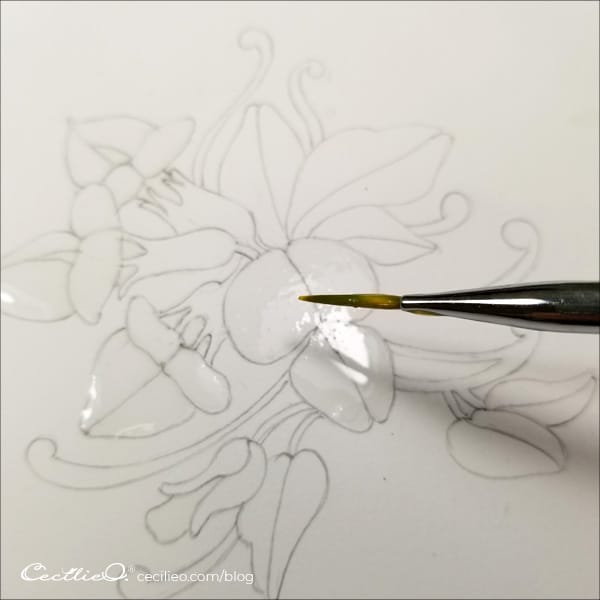
Step 2
Paint the petals with bright sun-yellow. Add orange-yellow to some parts of the petals, letting the colors flow freely into one another.
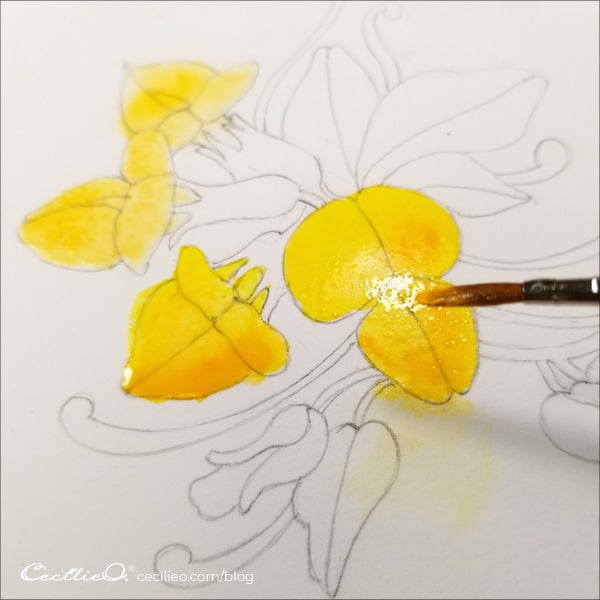
Step 3
What you see below is the palette I used. Some colors come ready-made, some I had to mix. Your watercolor set is probably different from mine, so this is a general guide.
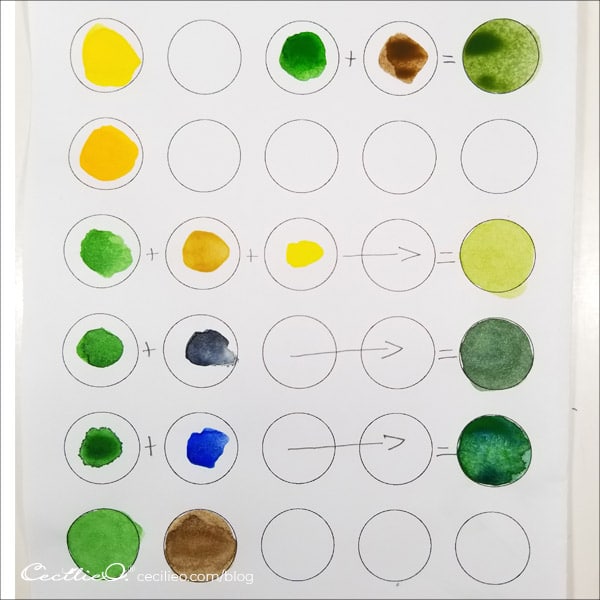
Step 4
When the yellow watercolor is completely dry, paint the leaves with ample water. In this way, you avoid green to bleed into the yellow petals. Paint the leaves with dark green, blue-green, and apple green watercolor. The water will allow the different greens to flow into each other. When the colors are dry, you will see subtle shades.
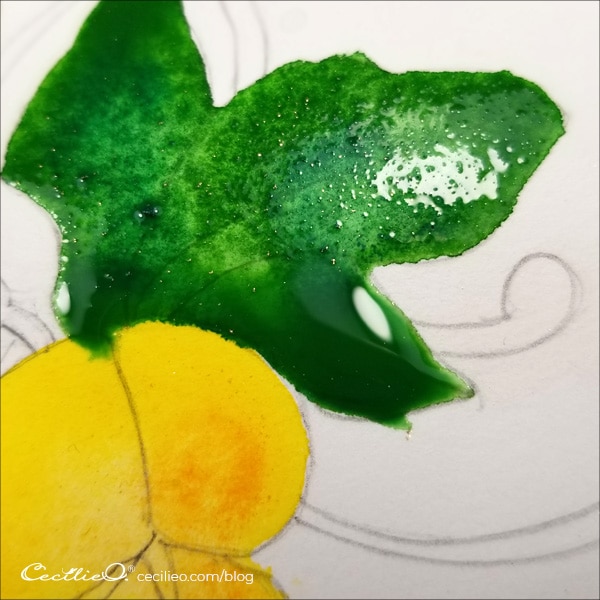
Step 5
Paint the flower receptacles light green. Paint the decorative stems with moss green, apple green, and dark green. You can use less water on these, but still enough to make the colors bleed into one another.
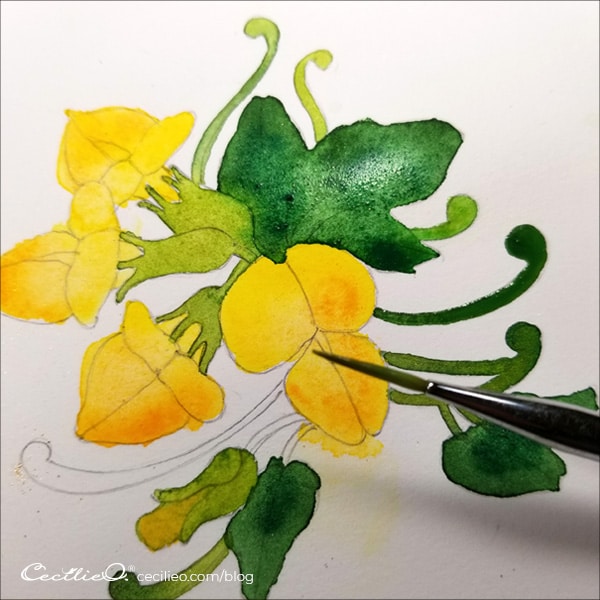

Step 6
With abundant water on your brush, add some brown to the receptacles and stems. Go gently, and let it flow.
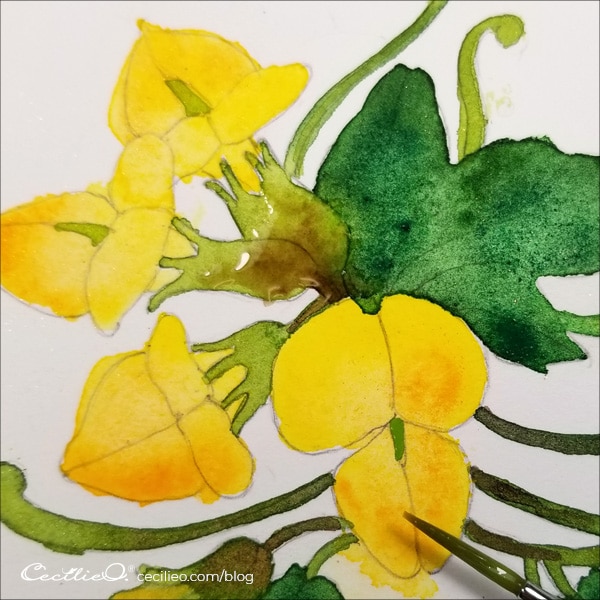
Step 7
Wait for the whole painting to get dry. If you start drawing with colored pencils when there is still moisture, they will not do a good job.
Draw the veins of the leaves with a light green colored pencil. With a grass green colored pencil, draw on random areas of the leaves to enhance the variation in green color. Draw with brown color on the stems.
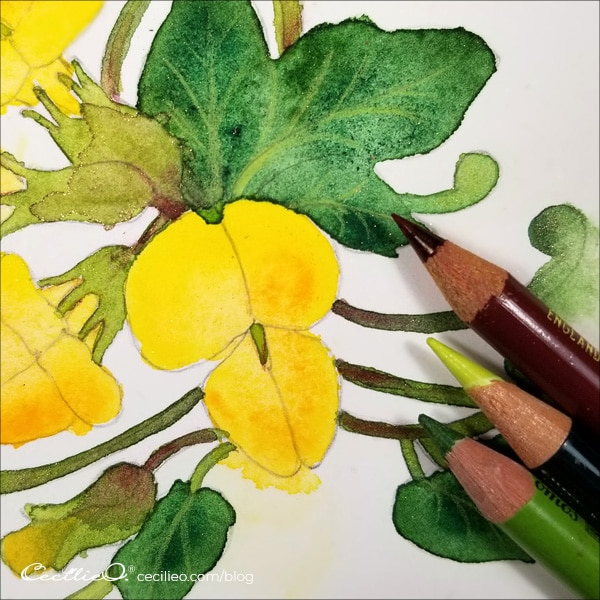
Step 8
You’re all done! Painting a watercolor flower can be easy, after all. Don’t worry about color flowing outside the outline. Let it be. It only makes the artwork more interesting.
Happy painting to you!
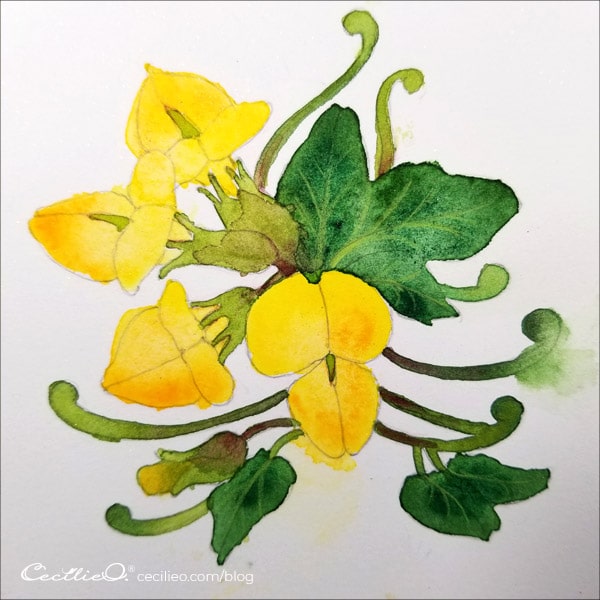
Happy painting to you!
If you are wondering about watercolor paper, paints, colored pencils, etc., you may find my Guide to Art Supplies helpful.




